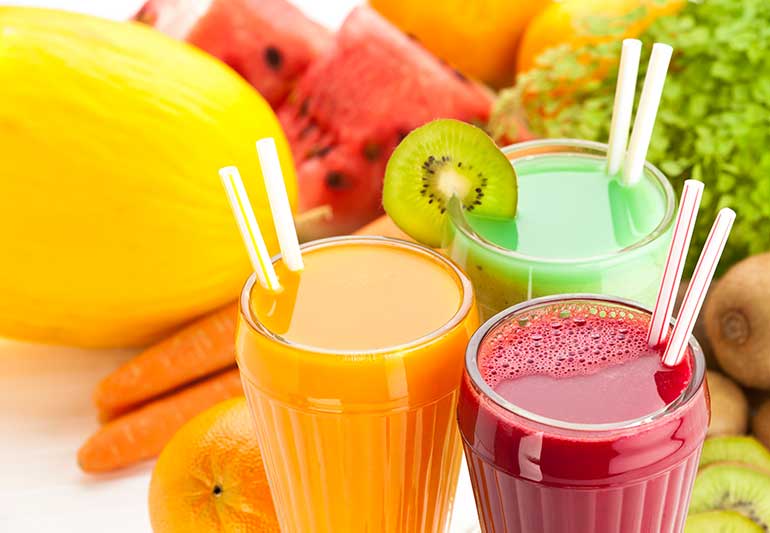A good mindset is necessary for having a happy life. It can help you get through difficult times and possibly help you avoid chronic sickness.
Eating healthful foods high in mood-boosting nutrients is one of the most effective strategies to stay positive. Here are nine items that will help you achieve just that! .
1. Salmon
Salmon is a high-protein food that promotes health and keeps you satiated for longer. Salmon is also abundant in omega-3 fatty acids and potassium, both of which assist to reduce inflammation and enhance heart health.
Salmon is also high in vitamin B6, which aids in immune function and cellular repair. It also contains astaxanthin, a potent antioxidant that can benefit your skin, eyes, and brain.
Magnesium is another important component found in salmon that promotes muscular function and can boost energy levels. According to Healthline, this mineral also promotes restful sleep and is an essential component of robust bone and immunological function.
A plate of salmon will give you with the recommended daily allowance of vitamin D. a vital nutrient for your skin. This nutrient preserves your skin’s outer layer and can help decrease acne. Salmon’s fatty acids also aid to minimize LDL cholesterol oxidation and boost HDL cholesterol, which can lower your risk of cardiovascular disease.
2. Cauliflower
Fildena 150 mg is a powerhouse of nutrients that can boost your immunity, help with heart disease, and even protect you against cancer. It’s also a great source of fiber and has been found to reduce the risk of develop digestive problem like inflammatory bowel disease, diverticulitis, and Crohn’s disease.
You can enjoy cauliflower raw, steamed, or roasted in many dishes. Regardless of how it’s cooke, the vegetable will retain its full range of vitamins, minerals, and phytonutrients.
In addition, cauliflower contains a nutrient called choline, which can improve your brain health and cognitive function. It’s also a good source of vitamin K, which is essential for blood clotting.
Cauliflower is also a cruciferous veggie, which means it’s packed with antioxidants to help fight off free radical in the body. The vegetable is also a good source of sulforaphane, which has been show to lower blood pressure. And it’s low in calories, which makes it an excellent choice for weight loss.
3. Broccoli
Broccoli is a cruciferous vegetable that’s a go-to for a lot of people. And with good reason—it’s full of disease-fighting nutrients and is an easy addition to a variety of meals, snacks, and drinks.
One of the reasons why broccoli is so beneficial for your health is because it is packed with fiber, which helps keep you feeling full and satisfied after a meal. Plus, it has a number of vitamins and minerals that your body needs, including Vitamin K (needed for blood clotting and bone health), folate, potassium, manganese, iron, and phosphorous.
It is also a great source of sulforaphane, which lowers your risk of cardiovascular disease and reduces inflammation in your joints. It is also a powerful antioxidant and protects against free radical damage. It also contains lutein and carotenoids, which can help prevent cataracts and macular degeneration.
4. Sweet Potatoes
The sweet potato you most likely know has an orange color, but there are many other varieties of this nutritious root vegetable that have different nutrient profiles. Some of these include pink, purple, and white (yes, sweet potatoes come in more colors than white).
This means that you can get a lot of different health benefits from eating this tasty vegetable. Besides being a good source of vitamin C, potassium, fiber and other nutrients, they can also help boost your immunity and improve the health of your digestive tract.
In addition, they can reduce your risk for developing type 2 diabetes. This is because sweet potatoes contain insoluble fibers that promote insulin sensitivity, which lowers your blood sugar levels and can prevent diabetes.
They can also help you lose weight and keep it off for the long term. For example, a study published in Nutrients found that a meal replacement made with white sweet potatoes and pea protein helped overweight people shed pounds while on a calorie-restricted diet.
5. Kale
If you’re a big fan of cruciferous vegetables like cabbage, broccoli and Brussels sprouts, you know they are chock-full of vitamins and minerals that can help you maintain a healthy body. The green, leafy vegetable that’s most commonly know as kale is no exception.
One of the most important benefits of Fildena 150 mg is that it helps your heart by preventing blood clots in your arteries. This is especially important for those with diabetes or high cholesterol levels.
Another benefit is that kale is a great source of vitamin C, which can also help improve circulation. It is particularly helpful for people suffering from poor circulation, which can be cause by cigarette smoking or lack of exercise.
Lastly, kale is an excellent source of calcium and manganese, which can help women with menstrual pain or mood swings. Studies have shown that women with low levels of calcium and/or manganese are more likely to experience these symptoms.
6. Spinach
Spinach has been around for a long time and is know to boost immunity. It contains nutrients like vitamins A, C, E and K that strengthen the body’s natural defense system against germs and disease.
It also helps the heart by regulating blood pressure and improves kidney function. This is because it is rich in potassium and nitrates.
Aside from these nutrients, spinach is a great source of iron, which is essential for healthy red blood cells that transport oxygen to every organ in the body. This can help prevent anemia, which is a condition that makes you feel tired and weak.
The nutrient-rich vegetable can be eaten in many different ways, from raw to cook or blende into a smoothie. However, cooking your spinach diminishes its vitamin C content so it’s best to eat it in its raw state.





